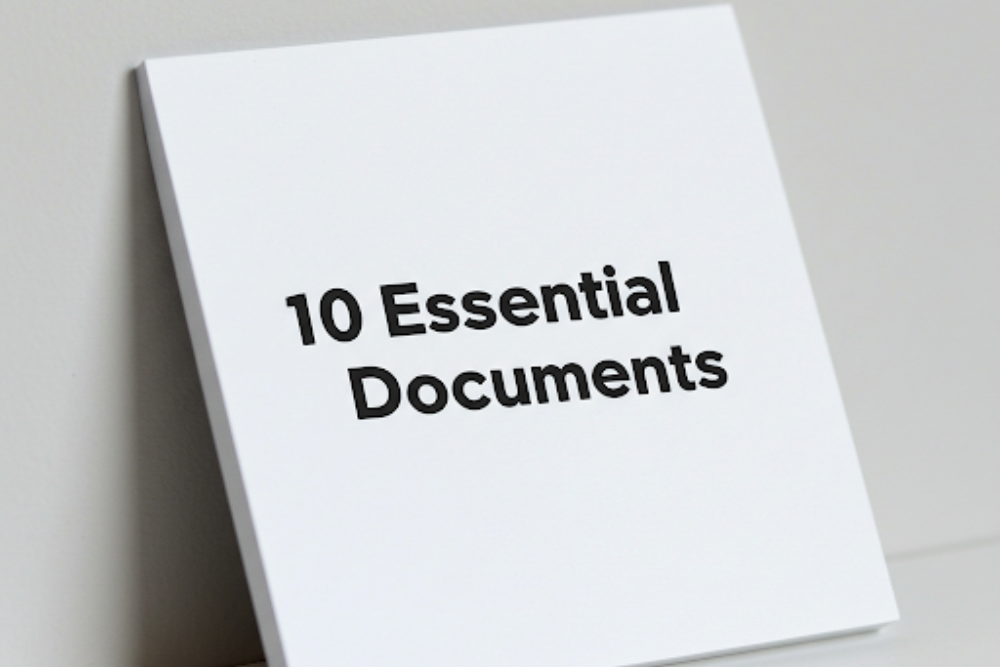Opening a healthcare practice is exciting, but getting started requires preparation, especially when it comes to documentation. Whether you’re a healthcare provider, clinic owner, or practice manager, having the right paperwork in place is essential to build a compliant, financially sound, and operationally efficient practice from day one.
Here’s a comprehensive, updated guide to the 10 essential documents you need to start a healthcare practice the right way.
1. Strategic Business Plan
Every successful practice starts with a clear vision. Your business plan should outline your target market, services offered, pricing model, competitive analysis, marketing strategy, and 3–5 year financial projections. Think of this as your roadmap—it aligns your mission with tangible goals and outlines how you’ll reach them.
2. Licenses and Certifications
Compliance starts here. You’ll need:
- A valid state medical license
- DEA registration (if prescribing controlled substances)
- Board certifications in your specialty
Each state has specific licensing requirements, so verify everything with your state’s medical board before you open.
3. Credentialing Documents
To accept insurance (and get reimbursed), credentialing is non-negotiable. You’ll need:
- Malpractice insurance certificates
- Updated CV and work history
- State medical license copy
- Hospital privileges (if applicable)
These help establish your legitimacy and allow you to join payer networks like Medicare, Medicaid, and private insurers.
4. Insurance Policy Database
Have a clear understanding of which insurance policies you’ll accept. Include Medicare, Medicaid, private carriers, and workers’ compensation. Keeping an internal reference file of accepted payers, billing requirements, and reimbursement timelines will ensure smoother revenue cycle management.
5. Legal Entity Formation Documents
The legal structure of your practice impacts liability, taxes, and growth. Common options include:
- Sole Proprietorship
- Partnership
- LLC or PLLC (common for healthcare professionals)
Document your formation with articles of incorporation and consult a legal advisor for the best fit.
6. Regulatory & Compliance Documentation
Healthcare is one of the most regulated industries. Maintain proper documentation for:
- HIPAA compliance
- OSHA safety standards
- CLIA (if performing lab work)
- CMS billing rules
- Staff credentialing and background checks
Also, ensure that your EHR system complies with all security and interoperability regulations.
7. Tax Identification Documents
You’ll need both:
- A federal EIN from the IRS
- A state tax ID (depending on your location)
These are vital for hiring employees, managing payroll, and filing both federal and state taxes.
8. Financial & Banking Documents
Set up a separate business banking account and organize:
- Loan agreements
- Credit lines
- Bookkeeping software access
- Financial projections
These documents ensure you’re tracking cash flow and remaining audit-ready.
9. Vendor & Supplier Contracts
Establish relationships early with labs, imaging centers, medical supply companies, and cleaning services. Contracts should clearly define:
- Terms of service
- Pricing structures
- Renewal conditions
- Compliance responsibilities
Keep everything organized and review it annually.
10. Corporate Files & Administrative Documents
These include:
- Bylaws or operating agreements
- Meeting minutes (if forming a board)
- Ownership agreements
- Insurance policies for the business (liability, property, etc.)
Digitize and back up these documents securely.
Setting up a healthcare practice takes more than medical expertise—it takes strategic planning, legal structure, and airtight compliance. Having these ten foundational documents ready will help streamline your launch, reduce risk, and create a strong base for long-term success.

